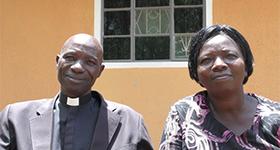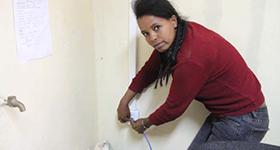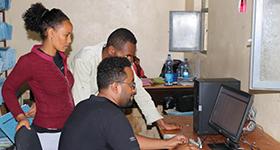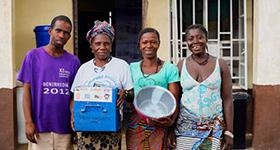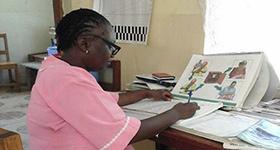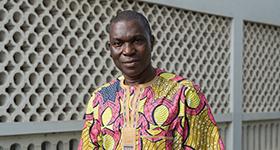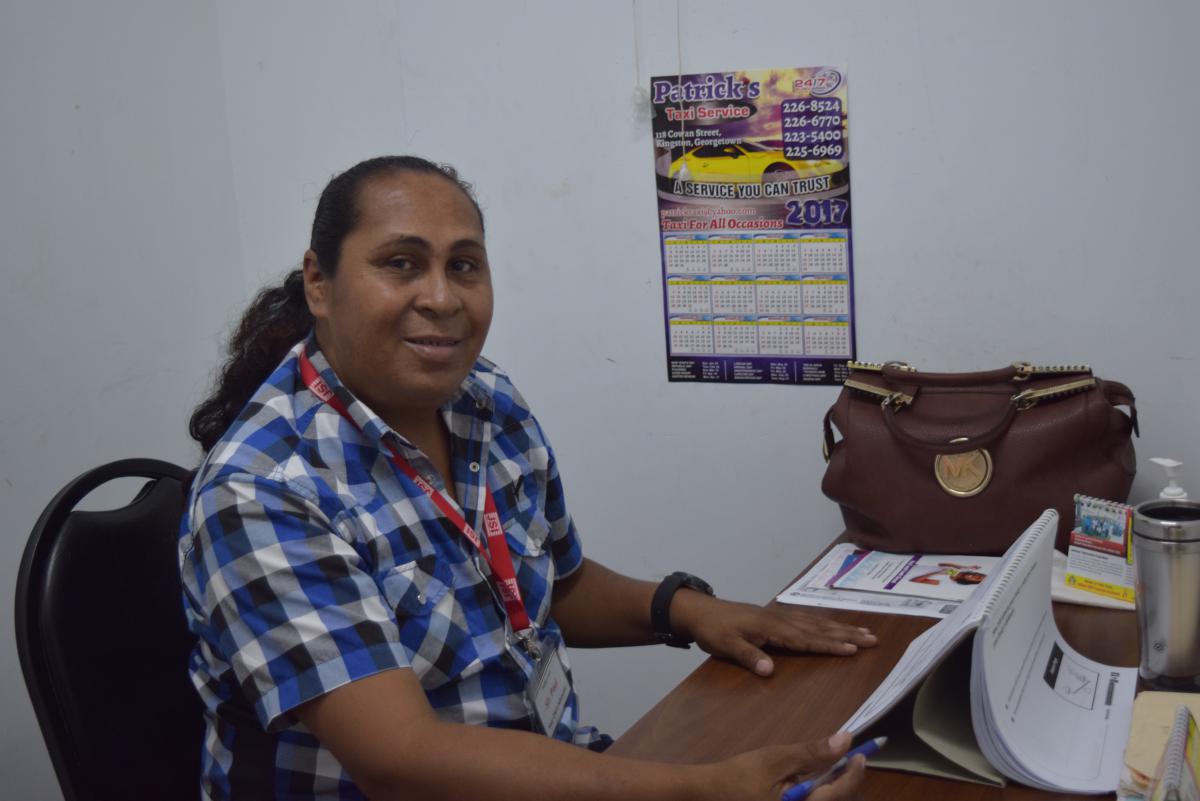
Antonio Paul, Client Advocate Associate for APC Guyana.
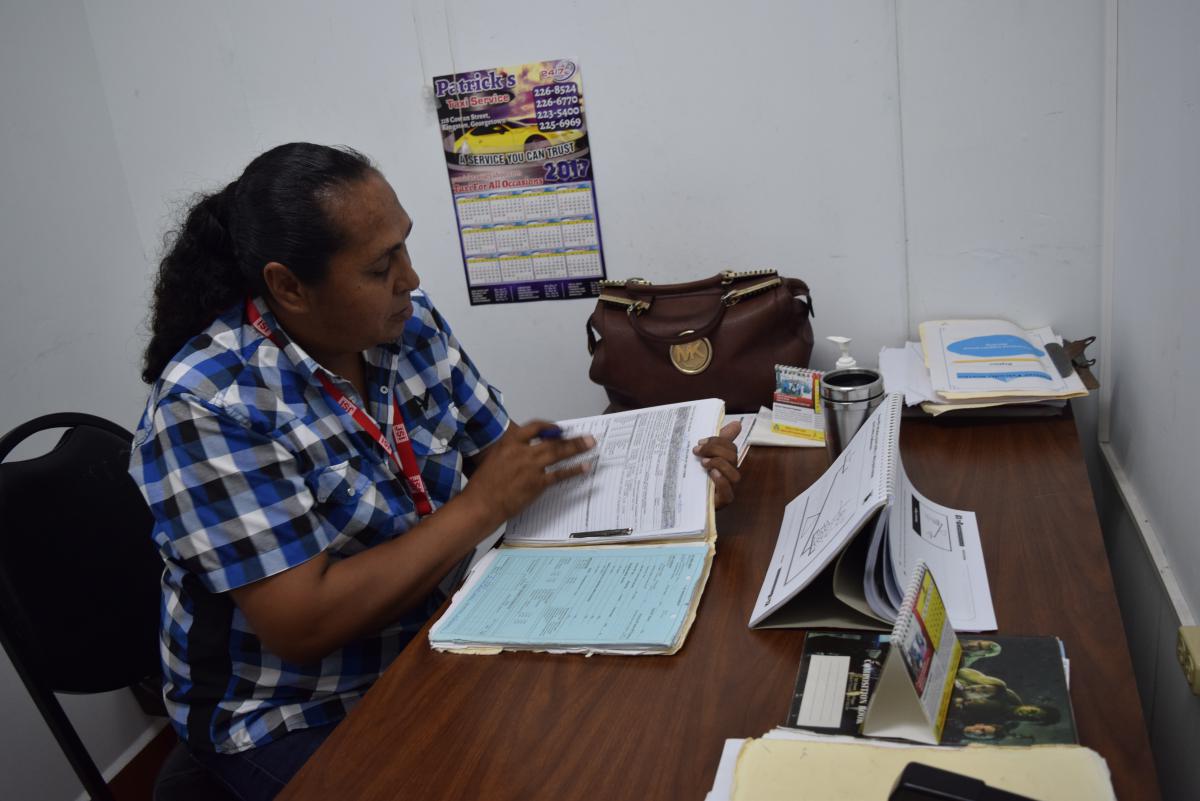
Antonio Paul prepares for an educational session.
For more than 15 years, Antonio, better known as ‘Sir Paul,’ has been one of the few openly gay men in his rural community, serving as an advocate for members of the LGBT community in Guyana. He has been a determined and unwavering activist, garnering support to address the numerous societal and institutional barriers that limit the daily freedoms of the LGBT community.
In 2007, Antonio fought for and founded an HIV+ support group at a national treatment site. The group brings various types of encouragement to the LGBT community. When asked why the group was so important, he stated, “I realized my friends were suffering. LGBT members were stigmatized—they were not seeking much needed health services because of high levels of discrimination. People I knew, good people, were suffering. I had to be courageous and do something.” Through his fearless work, Sir Paul has become known as a ‘mother’ within his community. He mentors many young LGBT persons and helps them to navigate the countless emotional elements faced when coming out to family and friends, and when living in Guyana.
As a Client Advocate Associate with APC Guyana, Sir Paul serves as a source of patient support. He offers one-on-one educational sessions, group support sessions, and seeks out defaulted HIV positive clients in order to return them to HIV care and to support antiretroviral therapy adherence. Sir Paul states that homophobia within some communities still presents challenges, and often times it is the same communities that most need the benefits from services. Other challenges encountered include: helping newly diagnosed HIV positive clients to accept their test results, dealing with the various psychosocial issues that can be made worse by clients not having sufficient HIV education, and addressing common responses like shock, disbelief, denial, fear and anxiety, depression and guilt. “I tell them this is not the end of life and living, that there is treatment, and most importantly they will be supported throughout everything by me. I won’t leave them to face it all alone.”

